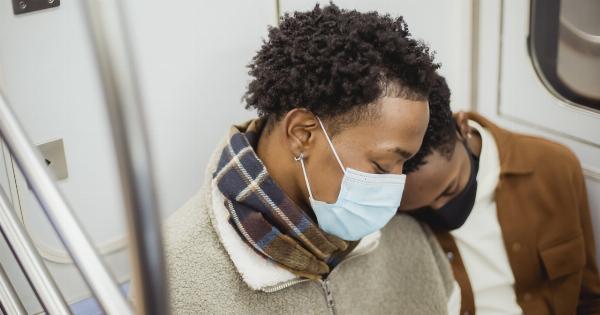People who suffer from sleep apnea experience disruptions in their breathing patterns while sleeping, which can lead to a variety of health problems.
However, using a mask designed to help with sleep apnea can have numerous benefits for those who use them. Here are some of the most significant benefits of using a mask for sleep apnea.
1. Improved Sleep Quality
One of the most notable benefits of using a mask for sleep apnea is that it can improve the quality of your sleep.
Regularly experiencing interruptions in your breathing patterns while you sleep can lead to restlessness during the night and daytime fatigue. When wearing a mask designed to help with sleep apnea, people can breathe more easily and sleep more soundly, which leads to an overall improvement in sleep quality.
2. Better Concentration and Mental Alertness
Untreated sleep apnea can affect your ability to concentrate during the day and can lead to mental fog and fatigue.
Using a mask to help with sleep apnea can improve the quality of your sleep, allowing you to feel more refreshed, alert, and focused throughout the day.
3. Reduced Risk of Health Issues Related to Sleep Apnea
Untreated sleep apnea can lead to the development of serious health issues, such as high blood pressure, heart disease, and strokes.
By using a mask designed to help with sleep apnea, you can significantly reduce your risk of developing these health problems. This is because the mask helps to keep your airways open and your breathing regular, which reduces the strain on your heart and other organs.
4. Increased Energy Levels
People who suffer from sleep apnea often experience daytime fatigue, which can make it challenging to find the energy to complete daily tasks.
When using a mask to help with sleep apnea, people can sleep more soundly and enjoy improved energy levels during the day.
5. Reduced Snoring
Snoring can be a symptom of sleep apnea, and it can be both frustrating and disruptive to your sleeping partner.
By using a mask designed to help with sleep apnea, you can reduce the severity of your snoring, which may lead to improved sleep for both you and your partner.
6. Improved Mood and Emotional Wellbeing
By improving sleep quality and reducing daytime fatigue, using a mask designed to help with sleep apnea can also have a positive effect on your mood and emotional wellbeing.
Over time, better sleep can lead to a reduction in stress and an improved outlook on life.
7. Customizable Options
There are many different types of masks available for people with sleep apnea, which means that you can find one that is comfortable, fits well, and meets your specific needs.
Some masks cover the nose and mouth, while others only cover the nose or are designed to sit under the nose. There are also different sizes available, and some masks are designed to work with specific types of machines.
8. Easy to Use
Using a mask designed to help with sleep apnea is incredibly easy. Once you have found a mask that fits you comfortably and works well with your machine, it is as simple as putting the mask on at night and adjusting the straps as needed.
Most masks are also easy to clean and maintain.
9. Covered by Health Insurance
If you have been diagnosed with sleep apnea by a qualified healthcare professional, your insurance may cover the cost of a mask designed to help with sleep apnea.
This means that you can enjoy the benefits of improved sleep quality, reduced snoring, and increased energy levels without having to worry about the cost.
10. Long-Term Benefits
Using a mask designed to help with sleep apnea can have long-lasting benefits for your health and wellbeing.
By improving sleep quality, reducing the risk of health problems related to sleep apnea, and improving your energy levels, you can enjoy a higher quality of life over the long term.




























